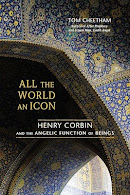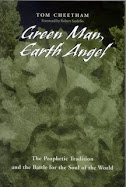"...the Imagination (or love, or sympathy, or any other sentiment) induces knowledge, and knowledge of an 'object' which is proper to it..."
Henry Corbin (1903-1978) was a scholar, philosopher and theologian. He was a champion of the transformative power of the Imagination and of the transcendent reality of the individual in a world threatened by totalitarianisms of all kinds. One of the 20th century’s most prolific scholars of Islamic mysticism, Corbin was Professor of Islam & Islamic Philosophy at the Sorbonne in Paris and at the University of Teheran. He was a major figure at the Eranos Conferences in Switzerland. He introduced the concept of the mundus imaginalis into contemporary thought. His work has provided a foundation for archetypal psychology as developed by James Hillman and influenced countless poets and artists worldwide. But Corbin’s central project was to provide a framework for understanding the unity of the religions of the Book: Judaism, Christianity and Islam. His great work Alone with the Alone: Creative Imagination in the Sufism of Ibn ‘Arabi is a classic initiatory text of visionary spirituality that transcends the tragic divisions among the three great monotheisms. Corbin’s life was devoted to the struggle to free the religious imagination from fundamentalisms of every kind. His work marks a watershed in our understanding of the religions of the West and makes a profound contribution to the study of the place of the imagination in human life.Search The Legacy of Henry Corbin: Over 800 Posts
Tuesday, March 29, 2016
La figure de la sophia chez Henry Corbin
by Daniel Proulx
now available on Academia.edu
Abstract
Henry Corbin's loving devotion to wisdom, to sophia, englobes the three terms of this conference. Without dealing directly with the notion of women and erös, this text explores the notion of sophia — philosophically feminine par excellence — in Henry Corbin's opus. This text is a first attempt to understand the Sophianic world as conceived by Henry Corbin. The axis chosen in undertaking this exploration is to rearticulate the influences on Corbin's thought in showing that the emphasis on Heidegger dissimulates the importance of sophia. This axis will also highlight an influence that has remained veiled, the Russian sophiologist Sergei Bulgakov's. In the course of this rearticulation, we will also encounter the sophiologies of Carl Gustav Jung and Nicolai Berdyaev - completing the picture of Western sophiologies present in Corbin's thought.
Subscribe to:
Post Comments (Atom)






No comments:
Post a Comment